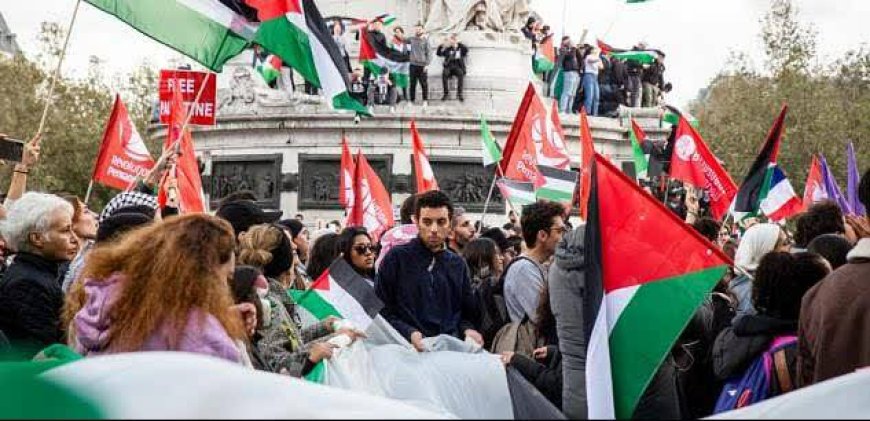Generation Z's Challenge: Confronting European Governments' Support for Israeli War Crimes
In recent weeks, following the October 7 operation carried out by the Palestinian resistance, a concerted effort by Israel-aligned Western media has sought to shift blame onto the Palestinians. This is coupled with the unwavering support of Western leaders for the Israeli regime and the condemnation of Hamas, irrespective of Israel's abhorrent war crimes committed in Gaza. The atrocities perpetrated by Israel, emboldened by the overwhelming backing from Western governments, have led to a massive genocide and forced displacement of civilians in Gaza. The media's complicity in promoting pro-Israeli narratives, along with the Israeli leadership's failure to anticipate a global awakening of public opinion, has led to a groundswell of support and sympathy for the Palestinian cause, particularly among the emerging European generation.

The younger generation, commonly referred to as Generation Z, has distanced itself from the traditional media's influence and is not swayed by their conventional narratives. Instead, they seek information directly from alternative social media platforms. Their voices are resolute and impervious to the attempts of Israeli lobby groups, which pour vast sums of money into silencing the voices of Palestinians. Generation Z cannot be controlled through token support for the Palestinians; they are trailblazers, seekers of justice, and critical thinkers, setting them apart from their predecessors.
Crucially, it is this very generation of European voters who will hold European politicians accountable for their complicity in the Gaza genocide through their silence, as they continue to underestimate the significance of Palestine to these young voters. These young individuals possess the power and will to effect change during elections, a fact that European leaders have not taken seriously so far. They mistakenly believe they can maintain their unwavering support for Israel without facing social condemnation. Young European voters have sent a clear message to their leaders: a change in stance is imperative. However, EU leaders remain oblivious to this call and fail to give it the attention it deserves.
Moreover, European leaders' response to the conflict in Gaza has unveiled a glaring weakness in leadership. Silence during such a critical juncture could be construed as complicity with the Israeli regime. Prominent European figures, including French President Emmanuel Macron and German Chancellor Olaf Scholz, have dismissed reports of war crimes and violations of international law in Gaza. Smaller EU nations, such as Bulgaria, have followed suit, with Prime Minister Nikolay Denkov even visiting occupied territories to meet Israeli Prime Minister Benjamin Netanyahu. Few exceptions to this tepid approach exist. Belgium's Deputy Prime Minister, Petra De Sutter, has called for economic sanctions against Israel, while Irish politicians condemned the killing of Palestinian children in Gaza. The Spanish Minister of Social Rights, Ione Belarra, stands as the sole European leader to boldly label the situation in Gaza as "genocide" and demand Netanyahu's trial. However, it is crucial to recognize that this minister's stance is an outlier within Europe's political sphere and does not represent the official pro-Zionist approach adopted by the European Union.
Despite recent, albeit insufficient, criticisms of Israel's actions from Josep Borrell, the EU's High Representative for Foreign Affairs, Generation Z requires more than these empty political gestures. European youth, acting as the conduit for the Palestinian voice, have shattered the information barriers erected by traditional media and harnessed the power of social media. Generation Z will challenge European politicians, compelling them to confront this reality sooner or later. This generation remains acutely attuned to the ethical discrepancies and human rights double standards exhibited by their political leaders, prompting numerous questions to arise.
Indeed, the policies of the European Union's leaders have inadvertently galvanized people across the West to take to the streets in support of humanity and justice in Palestine. The issue of Palestine has transcended mere politics. These massive demonstrations, which now encompass all sectors of society, irrespective of race or religion, represent a resounding victory for the Palestinian cause while simultaneously dealing a significant blow to the Israeli regime’s international standing.













































